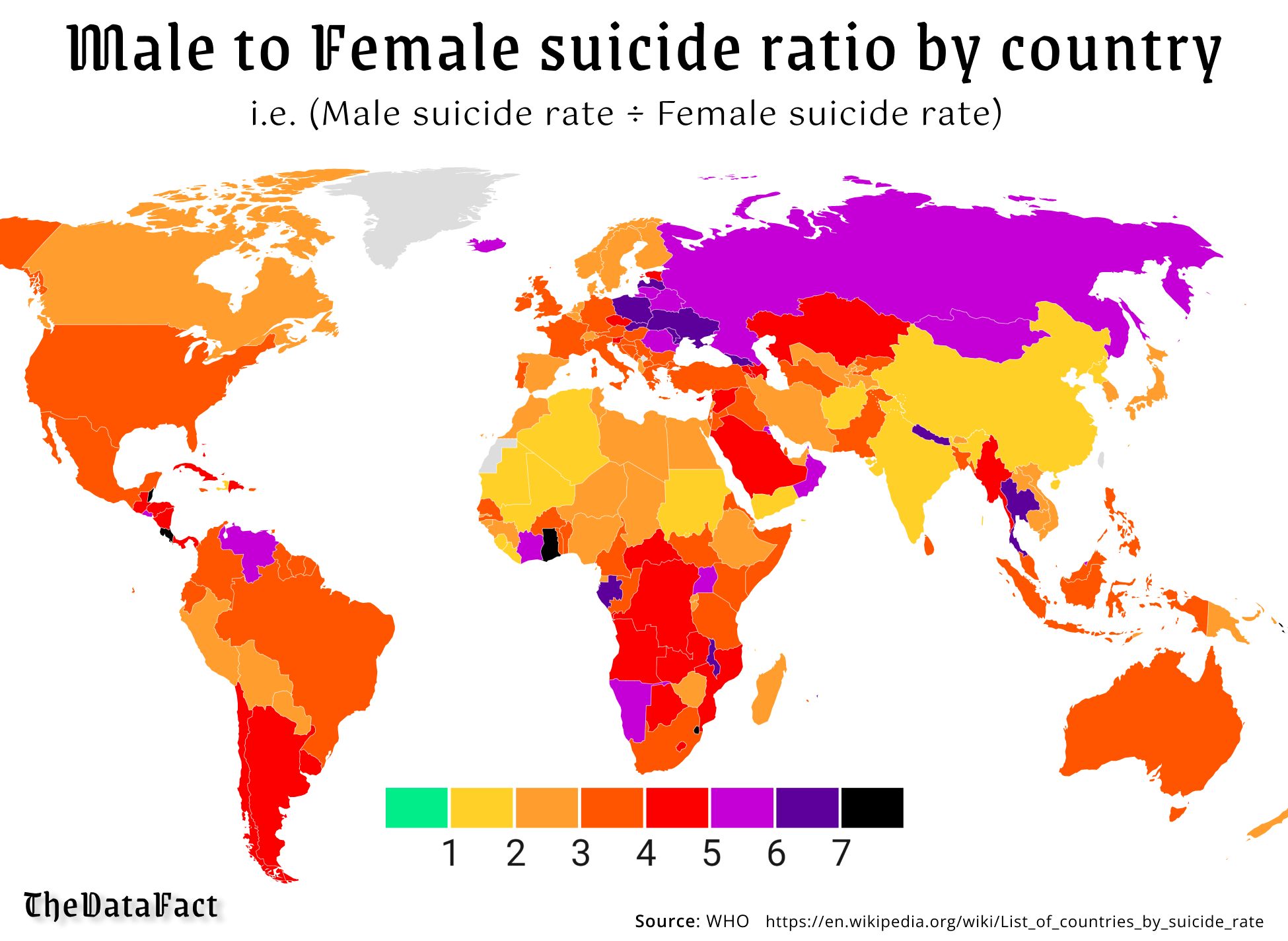this post was submitted on 26 Mar 2024
192 points (88.1% liked)
MapPorn
3253 readers
1 users here now
Discover Cartographic Marvels and Navigate New Worlds!
Rules
- Be respectful and inclusive.
- No harassment, hate speech, or trolling.
- Engage in constructive discussions.
- Share relevant content.
- Follow guidelines and moderators' instructions.
- Use appropriate language and tone.
- Report violations.
- Foster a continuous learning environment.
founded 2 years ago
MODERATORS
you are viewing a single comment's thread
view the rest of the comments
view the rest of the comments

Women are more likely to opt for "clean" methods to avoid leaving a mess for grieving family. Paracetamol overdose, poisons, natural gas. For whatever reason (and anecdotally I can blame the way women are socialised to put others first by valuing "feminine" traits of caring and nurturing) women will go for a slower, even more painful method if it means less trauma for those finding the body. Women often have an existing support network that "failed" them, and they don't want that support network to feel guilty, so making their death seem "peaceful" plays into the suicide plan.
Men are more likely to go for methods that are quick and effective because the ultimate goal is to die. Men don't have that same support network, there was nobody there to "fail" these men, they often had no one in the first place, so there's not as much consideration for what the method of death may mean for those left behind. Men are more likely to jump in front of trains or shoot themselves.
The support network plays into this as well, because women often have other people, they may accidentally let on that something has changed in their lives suicide motivation. Even a simple "you're a great friend, thank you for being there" text could send a red flag and women are more likely to have paramedics called by a suspicious friend or family member.
Because men often don't have anyone, they don't raise any red flags, so their attempts have no external intervention.
That's a lot of good info, but it sounds like the short answer to my question is "no?"
Sorry, I replied to the wrong level in that comment thread and in doing so didn't answer your question at all because I wasn't thinking about your question specifically.
Women have all the same options as men, but because of the way women are socialised those options seem unfavourable.
Do you think the inverse is also true? That men are socialized in a way that makes certain options seem unfavorable? For example, men are far less likely to pick methods that give other people a chance to intervene.